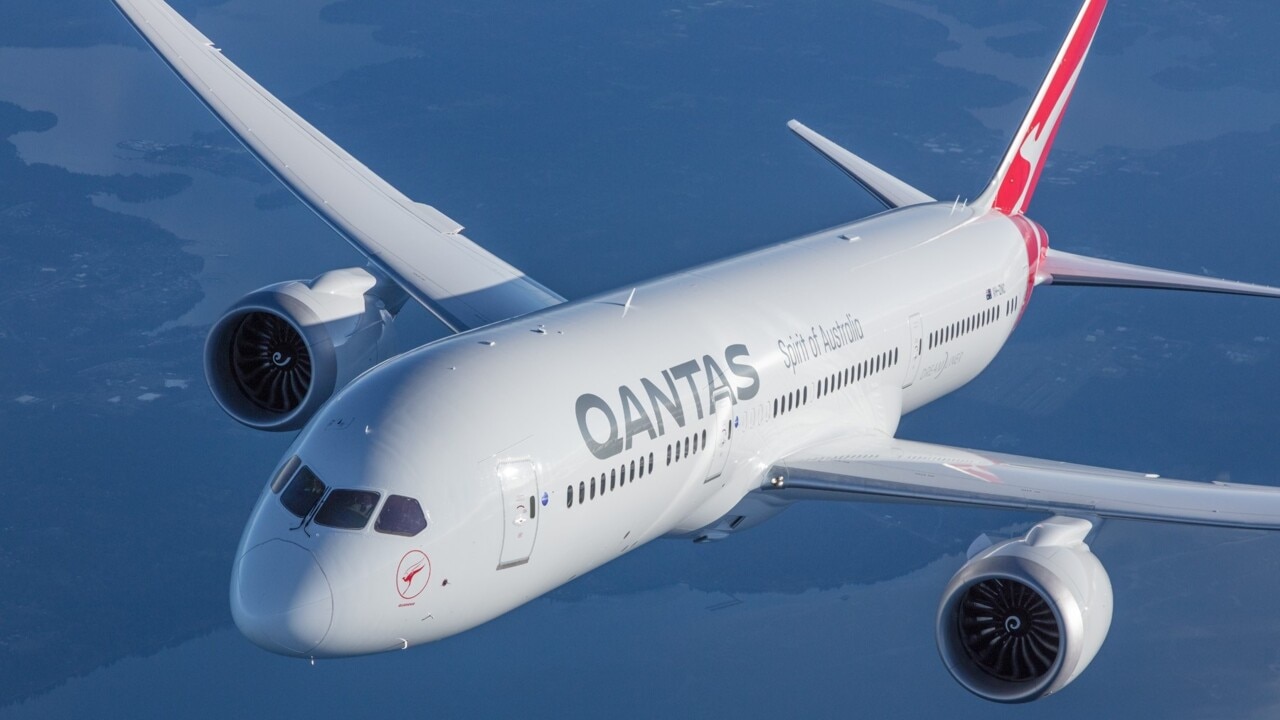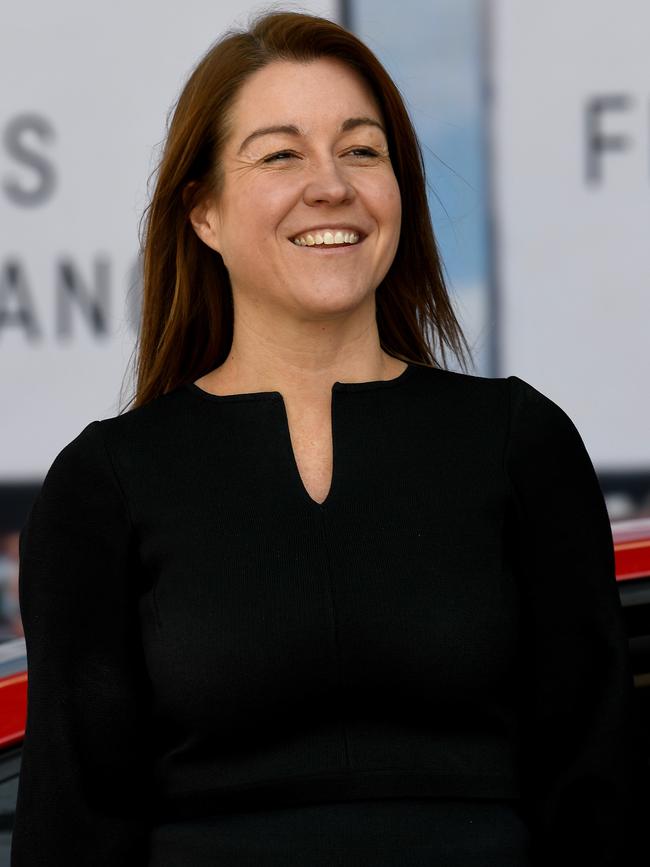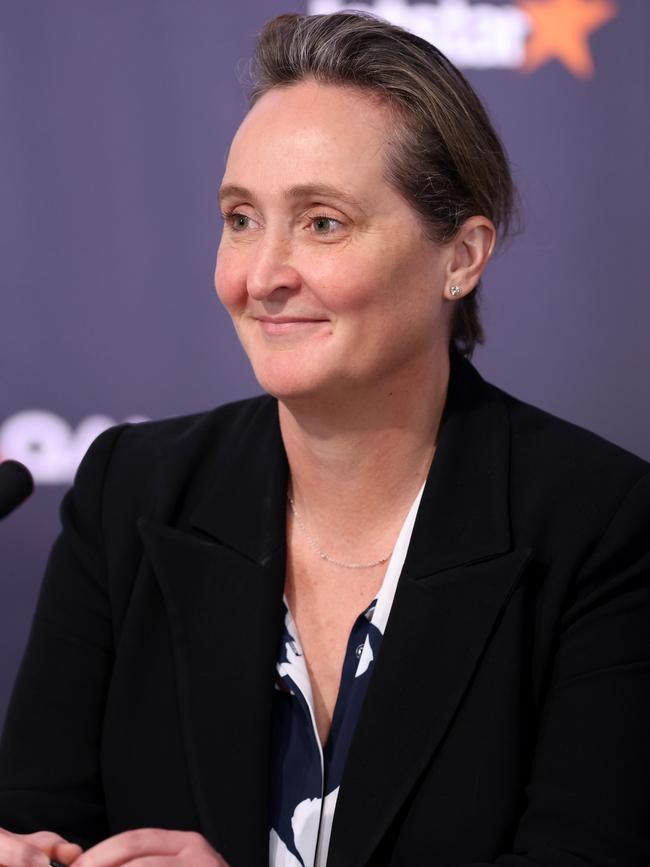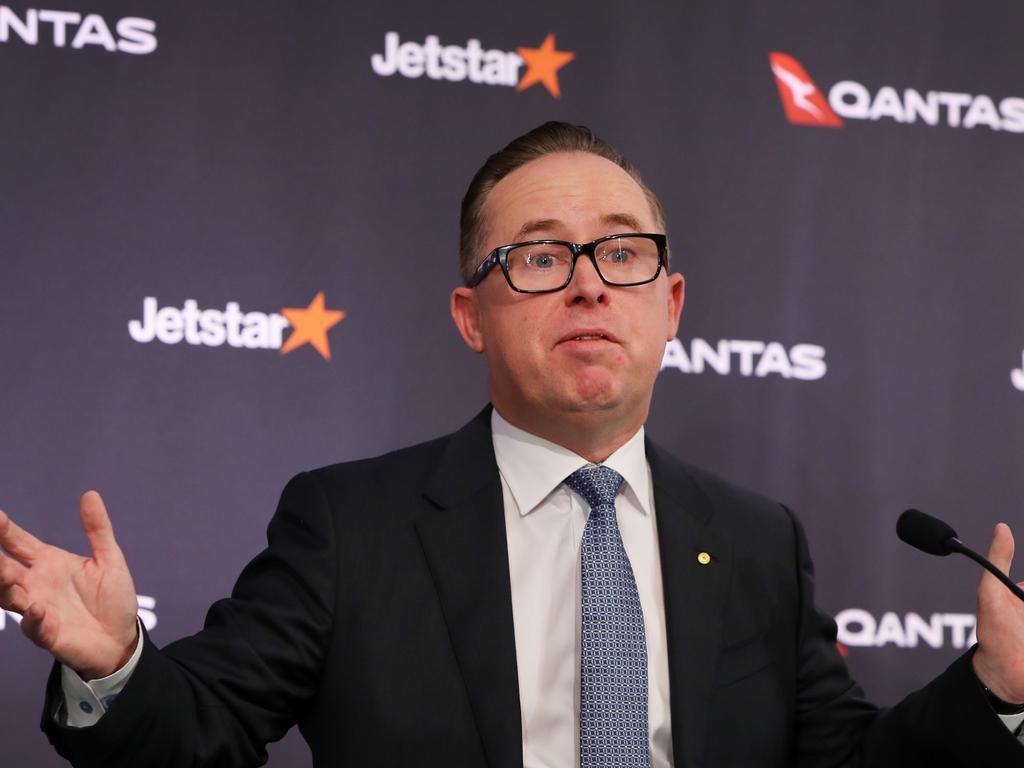Qantas dogfight: Contenders brace for turbulent CEO battle
A three-way battle has opened up to replace long-serving Qantas boss Alan Joyce.

When Qantas made a stock exchange announcement this week headlined “Group Management Team Changes”, more than one investor thought the airline was finally going to announce who would replace chief executive Alan Joyce.
What it announced was the appointment of former Air New Zealand customer and chief commercial officer Cam Wallace to run the international airline and freight. Exiting the company was Andrew David, who currently runs both the international and domestic airline.
“I saw the headline and thought it would be an announcement on how he would transition,” says Steve Johnson from Forager Funds, which owns Qantas shares. “I was surprised to see that wasn’t a part of it, even just putting a timeline around it.”
The senior hire certainly sparked intrigue and set the table for a three-way battle for leadership between Mr Wallace, chief financial officer Vanessa Hudson and Loyalty CEO Olivia Wirth.
Behind the scenes The Australian understands that Ms Hudson and Ms Wirth were actually on the selection panel, along with Mr Joyce, that chose to hire Mr Wallace in the first place.
It was the same panel that chose Stephanie Tully – also rumoured by some to be a potential CEO – for her current role running Jetstar.
All of which suggests Mr Wallace may not be a serious contender.

What is fact is that it’s time for Mr Joyce to go, according to Mr Johnson. The Irish-born boss of the Flying Kangaroo is divisive. After more than 14 years at the top he leaves a mixed legacy of being applauded by the market for returning to record profits, but disliked by many customers because of the company’s poor track record with baggage, on-time departures, turnarounds and cancellations.
“It’s time, and it’s not because he’s doing a bad job. I just think he’s been in the role for a long time and I think change and succession is a positive,” Mr Johnson says.
The question then is whether Qantas will go with the numbers person or the woman that understands the power of brand. Russell Reynolds – the recruitment firm Qantas has used over the years – is likely to be involved.
The “numbers” person is Ms Hudson, who has helped take Qantas from $7bn of losses to produce a record $1.42bn underlying interim profit in the first half of 2023.
She is already liked by the stockmarket and highly regarded by the finance teams she presides over. Ms Hudson has worked at Qantas in its various guises for almost 30 years, including a successful stint running The Americas.

Still, the board may decide that it is more important to rebuild brand and customer sentiment, both badly damaged during and after Covid.
Since joining Qantas over 13 years ago, Ms Wirth’s background in running media, marketing, customers, and for the past five years, the loyalty business makes her the more obvious choice if the board believes the most important task is to win back favour with customers.
The work she has done to build the Qantas loyalty business into a non-volatile cash cow would not have gone unnoticed either. The unit is relatively immune to the highs and lows of aviation and produced earnings before interest and tax of $1.5bn since she took it over in March 2018.
So what of the newcomer Mr Wallace?
Insiders say he was well-liked during his 19 years at Air New Zealand, a career which ended during the Covid lockdown of 2020. Mr Wallace’s career spanned sales, regional management, customer and loyalty. His track record as the CEO of MediaWorks, a role he took during Covid in 2021, is less easy to judge, both because of New Zealand’s tough pandemic lockdowns, and the culture of bullying, harassment and racism he inherited when he took over.
An independent report on the culture of MediaWorks released six months after Mr Wallace started resulted in six investigations of inappropriate relationships, use of illegal drugs and instances of sexism, all of which occurred before he took the reins.


While Mr Wallace could still be an outside contender for the Qantas CEO position, it’s unlikely he would have made the decision to move his family from New Zealand to Australia on the basis of winning a highly competitive selection process.
More likely, he will be able to step into a greater role behind whichever of the two women wins the CEO role. Insiders say it’s unlikely that the loser will stay on for long.
Is it actually a win though?
The payout can be huge – Mr Joyce took home $23.9m just over four years ago – but the public interest and derision can be disproportionately high at Qantas. The Irish-born boss has had a pie thrown in his face and his home in Mosman egged.
Mr Johnson says it is a job for a very specific type of person. One with thick skin would be a bonus.
They would need to be “extremely experienced in the airline industry, extremely financially literate, very good negotiators and able to cop a lot of spray from the media and everyone else,” said Mr Johnson. Qantas was “a lightning rod well and truly beyond its relevance”.
As for who should take the role, Mr Johnson, who owns Qantas shares, said he is happy with how the airline has been run and is happy to defer that decision to the experts.
“The strategy here is pretty straightforward. They need to buy planes and run an airline profitably,” he said.
“It’s just not a business where there is a massive amount of threat to the direction the airline is going. Its main asset is its 70 per cent market share and it can make money when nobody else is, and I think the main game here is to make sure you defend that.”







To join the conversation, please log in. Don't have an account? Register
Join the conversation, you are commenting as Logout